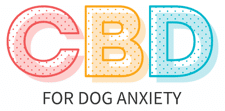
Your pet deserves the best. Treat them to King Kanine's organic and pesticide-free CBD products. Use code 25LIFE for 25% off your first order.
If you're wondering how to help your dog with separation anxiety, you may not know that cannabidiol (CBD) could offer relief. Many dog owners like yourself have found that CBD can be an effective natural remedy for calming their furry friends' nerves when they're apart. It's worth considering CBD for your dog's separation woes, as it has shown promise in easing anxiety and promoting relaxation. By exploring the potential benefits of CBD for your dog, you can provide them with the support they need to feel more at ease during times of separation.
Key Takeaways
- Separation anxiety is a common anxiety disorder in dogs that can lead to destructive behaviors.
- CBD can help ease a dog's separation anxiety by promoting relaxation and calmness.
- Proper dosage and consultation with a veterinarian are important for the effectiveness of CBD in managing separation anxiety.
- Choosing high-quality CBD products formulated for dogs and considering a dog's size and individual needs is crucial for optimal results.
Understanding Canine Anxiety Disorders
Understanding canine anxiety disorders can be crucial for helping your dog cope with separation woes. Behavioral and environmental factors can contribute to your dog's anxiety, such as a change in routine, loud noises, or being left alone for extended periods. These triggers can lead to destructive behavior, excessive barking, or withdrawal. Identifying the causes specific to your dog's anxiety is the first step in addressing the issue. Treatment options range from behavioral training and environmental adjustments to medication in severe cases. Creating a safe and comforting environment for your dog, providing mental stimulation, and gradually desensitizing them to separation can all help alleviate their anxiety. It's important to consult with a veterinarian to determine the best approach for your furry friend's unique needs.
Types of Anxiety Disorders in Dogs
Is your dog exhibiting signs of anxiety? There are several types of anxiety disorders that can affect your furry friend, including separation anxiety, noise phobia, and social anxiety. Understanding these different types of anxiety triggers can help you identify the behavioral signs of anxiety in your dog and recognize the impact it can have on their overall health and well-being.
Common Anxiety Triggers
If your dog exhibits signs of anxiety, identifying common triggers, such as separation, noise, or social anxiety, can help you understand their specific anxiety disorder. Separation anxiety is one of the most prevalent triggers in dogs, often leading to destructive behaviors when left alone. Noise anxiety, which includes fear of thunderstorms or fireworks, can cause distress and panic in dogs. Social anxiety may arise from unfamiliar people, animals, or environments, resulting in withdrawal or aggression. Coping strategies for these triggers may involve desensitization techniques, creating a safe space, or using calming aids. Understanding these common triggers can assist you in addressing your dog's anxiety more effectively and providing the support they need.
Now, let's delve into the behavioral signs of anxiety in dogs.
Behavioral Signs of Anxiety
Recognize the behavioral signs of anxiety in your dog to identify the specific type of anxiety disorder they may be experiencing. Some common signs and symptoms of anxiety disorders in dogs include:
- Excessive barking, whining, or howling, which may indicate separation anxiety and distress when left alone.
- Destructive behavior, such as chewing furniture or scratching doors, as a coping mechanism for anxiety triggers.
- Withdrawal or avoidance of social interaction, indicating generalized anxiety and fear of certain situations.
Understanding these behavioral signs can help you provide the appropriate support for your furry friend. Behavioral therapy and natural remedies, such as CBD benefits, can be effective in managing anxiety disorders in dogs. By recognizing these signs, you can take the necessary steps to address your dog's anxiety and improve their overall well-being.
Transitioning into the subsequent section about 'impact on dog's health', it is essential to understand how anxiety can affect your dog both mentally and physically.
Impact on Dog's Health
How does anxiety affect your dog's overall health and well-being, and what are the different types of anxiety disorders that can impact them? Anxiety in dogs can have a significant impact on their health, leading to behavioral issues and physical symptoms. Common types of anxiety disorders in dogs include separation anxiety, noise phobia, and social anxiety. These disorders can result in increased stress levels, decreased appetite, digestive issues, and even weakened immune function. Addressing your dog's anxiety is crucial for their overall health and quality of life. When considering solutions such as cannabidiol (CBD), it's essential to understand the potential health benefits and dosage guidelines to ensure the best outcome for your furry companion. Now, let's delve into the symptoms of separation anxiety in dogs.
Symptoms of Separation Anxiety in Dogs
Dogs experiencing separation anxiety may exhibit symptoms such as excessive barking, destructive behavior, and urination or defecation indoors. This can be distressing for both you and your furry friend. When your dog displays these signs, it's important to address the underlying causes and consider coping strategies to help them feel more secure. Here are some emotional responses you may experience when observing your dog's separation anxiety symptoms:
- Worry: Seeing your dog in distress may cause you to feel anxious and concerned about their well-being.
- Guilt: You might feel guilty for leaving your dog alone and worry that you're causing their anxiety.
- Helplessness: It can be frustrating and disheartening to witness your dog struggling with separation anxiety, especially when you're not sure how to help them.
Understanding and recognizing these symptoms is the first step in finding ways to support your dog through their separation anxiety.
Traditional Treatments for Canine Anxiety
You may be considering traditional treatments for your dog's anxiety, understanding that medication side effects and the effectiveness of behavioral therapy are crucial considerations. It's important to weigh the potential risks and benefits of medications, as well as explore the effectiveness of behavioral therapy in addressing your dog's anxiety. Additionally, natural remedy options can offer a holistic approach to managing your dog's separation woes.
Medication Side Effects
Considering traditional treatments for canine anxiety, you may experience medication side effects that can impact your dog's well-being. Common side effects of traditional anxiety medications for dogs include drowsiness, increased thirst and urination, nausea, and potential long-term effects on the liver and kidneys. This can be emotionally distressing for you as a pet owner, as you want the best for your furry friend and managing their anxiety is a top priority. Witnessing your dog experience discomfort due to medication side effects can be heartbreaking, leaving you feeling helpless. Additionally, the thought of subjecting your dog to potentially harmful medications may cause anxiety for you as well. Exploring alternative remedies becomes crucial in such situations. It's natural to seek solutions that prioritize your dog's well-being and offer peace of mind for both you and your beloved companion.
Behavioral Therapy Effectiveness
Your dog's behavioral therapy effectiveness in traditional treatments for canine anxiety can significantly impact their overall well-being and emotional stability. Canine behavioral modification and therapy play crucial roles in anxiety management. Behavioral therapy aims to modify your dog's responses to anxiety triggers through positive reinforcement and desensitization techniques. It helps your dog learn coping mechanisms and develop a sense of security in anxiety-inducing situations. Additionally, when combined with medication, behavioral therapy can enhance the effectiveness of traditional treatments for canine anxiety. It promotes long-term emotional stability and reduces the reliance on medication, minimizing potential side effects. Understanding the effectiveness of behavioral therapy in traditional treatments for canine anxiety empowers you to make informed decisions that prioritize your dog's mental and emotional well-being.
Natural Remedy Options
Behavioral therapy effectiveness significantly impacts traditional treatments for canine anxiety, emphasizing the importance of considering natural remedy options for your dog's separation woes. When it comes to helping your furry friend cope with anxiety, it's crucial to explore natural and holistic approaches that can complement behavioral therapy. Here are some natural remedy options to consider:
- Herbal remedies: Certain herbs like chamomile and valerian root have calming properties that can help soothe your dog's nerves.
- These herbal remedies can provide a gentle, natural way to alleviate your dog's anxiety without the potential side effects of pharmaceuticals.
- Holistic approach: Incorporating holistic practices such as acupuncture or massage therapy can contribute to your dog's overall well-being and help reduce anxiety.
- A holistic approach focuses on addressing the root cause of anxiety and promoting balance in your dog's physical and emotional health.
Benefits of CBD for Canine Anxiety
Ease your dog's anxiety with CBD. When considering CBD for your dog's anxiety, it's important to start with the right dosage. The appropriate CBD dosage for dogs is determined by their weight and the severity of their anxiety. Generally, it's recommended to start with a low dose and gradually increase it until the desired effect is achieved. CBD can be administered to your dog in various forms, including oil, treats, or capsules. Administering CBD oil directly into your dog's mouth or mixing it with their food are effective methods. CBD treats and capsules also offer a convenient way to ensure your dog receives the right dosage. By incorporating CBD into your dog's routine, you can help alleviate their anxiety and improve their overall well-being.
Now, let's delve into how CBD works for canine separation anxiety.
How CBD Works for Canine Separation Anxiety
When considering CBD for your dog's separation anxiety, it is important to understand how this natural remedy can help alleviate their distress when you are not present. CBD works for canine separation anxiety by interacting with the endocannabinoid system, which helps regulate mood, anxiety, and stress responses. Here's how CBD can be effective in addressing your dog's separation anxiety:
- CBD promotes relaxation and calmness, helping to reduce your dog's anxiety levels.
- This can lead to a decrease in destructive behaviors caused by separation anxiety, providing a sense of relief for both you and your pet.
- Proper dosage recommendations are crucial for ensuring the effectiveness of CBD in managing your dog's separation anxiety.
- Consult with a veterinarian to determine the appropriate dosage based on your dog's size, weight, and individual needs.
- Consistent use of CBD can support your dog's overall well-being, fostering a happier and more balanced state, even when you're away.
Understanding the potential of CBD in addressing your dog's separation anxiety can bring hope and comfort as you seek solutions to support your furry companion.
Choosing the Right CBD Product for Your Dog
Consider various factors such as your dog's size and individual needs when choosing the right CBD product for them. Look for high-quality CBD products specifically formulated for dogs. Opt for organic, non-GMO, and full-spectrum CBD oils or treats that are free from additives, pesticides, and solvents. Pay attention to the CBD concentration in the product as well. Small dogs may require lower concentrations, while larger dogs may need higher strengths. Additionally, consider your dog's preferences and any dietary restrictions they may have. For example, if your dog has allergies, choose CBD products that are free from common allergens. Always consult with your veterinarian before introducing CBD to your dog's routine to ensure it's the right choice for their individual needs.
As you consider the right CBD product for your dog, it's important to also understand the proper dosage and administration.
Dosage and Administration of CBD for Dogs
To determine the appropriate dosage and administration of CBD for your dog, consult with a veterinarian familiar with your pet's medical history and needs. Proper dosing and effective administration of CBD for dogs are crucial for ensuring its benefits. Here's what you should consider:
- Start Low and Go Slow: Gradually introduce CBD to your dog's routine, starting with a low dose and monitoring their response closely. This approach allows you to find the optimal dose for your dog without overwhelming their system.
- Consistency is Key: Administer CBD to your dog at consistent intervals to maintain steady levels in their system, promoting a more balanced and sustained effect.
- Observe and Adjust: Pay close attention to your dog's behavior and make adjustments to the dosage as needed, ensuring they receive the most effective and personalized care.
Potential Risks and Side Effects of CBD for Dogs
Before starting CBD for your dog's separation anxiety, be aware of potential risks and side effects. While CBD is generally well-tolerated in dogs, there are potential risks and side effects to consider. It's crucial to ensure proper dosage regulation, as excessive doses may lead to drowsiness or gastrointestinal upset. Long-term effects of CBD in dogs are still being studied, so it's important to monitor your dog's response closely. Research evidence on CBD for dogs is growing, but it's essential to consult with a veterinarian before starting any new treatment. Additionally, it's valuable to explore alternative therapies and behavioral interventions alongside CBD to address your dog's separation anxiety comprehensively. Always prioritize your dog's well-being and seek professional guidance to make informed decisions about their care.
Frequently Asked Questions
Can CBD Be Used as a Replacement for Traditional Treatments for Canine Anxiety?
CBD can be effective for canine anxiety, with fewer side effects than traditional treatments. Proper dosage and administration are crucial for safety and effectiveness. It's important to consult with a vet to ensure the best approach for your dog.
Are There Specific Breeds or Ages of Dogs That May Not Respond Well to CBD for Separation Anxiety?
Certain breeds or older dogs may not respond well to CBD for separation anxiety. Training techniques and behavioral therapy tailored to the individual dog's needs are often more effective. It's important to consider a holistic approach.
How Long Does It Typically Take for CBD to Start Working for a Dog's Separation Anxiety?
Typically, CBD dosing for dogs takes about 30-60 minutes to start working for separation anxiety. It's essential to monitor behavioral changes closely, adjusting the dosage as needed to ensure effectiveness and your dog's well-being.
Are There Any Potential Interactions Between CBD and Other Medications or Supplements a Dog May Be Taking?
When considering CBD for your dog, it's crucial to be aware of potential interactions with other medications or supplements. Always consult with a veterinarian to ensure safety, avoid potential side effects, and explore alternative therapies.
How Can I Ensure That the CBD Product I Choose for My Dog Is Safe and High Quality?
When choosing CBD for your dog, ensure it's safe and high quality. Seek vet recommendations and look for products that have undergone rigorous testing. Your furry friend deserves the best, so don't compromise on quality.
Conclusion
So, when considering cannabidiol for your dog's separation anxiety, it's important to understand the potential benefits and risks. With CBD's calming effects and minimal side effects, it may be a promising option for managing your dog's anxiety. It's like finding a silver lining in the stormy clouds of your dog's anxiety, offering a ray of hope for a happier and more relaxed furry friend.

Don't let your pet suffer in silence. Try King Kanine's CBD products and see the difference for yourself. Use code 25LIFE for 25% off your first order.


